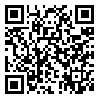BibTeX | RIS | EndNote | Medlars | ProCite | Reference Manager | RefWorks
Send citation to:
URL: http://jdisabilstud.org/article-1-2501-en.html
2- Assistant Professor, Department of Psychology and Education of Exceptional Children, Faculty of Literature, Humanities, and Social Sciences, Science and Research Branch, Islamic Azad University, Tehran, Iran
3- Associate Professor, Department of Psychology and Education for Exceptional Children, Faculty of Psychology and Education, University of Tehran. Tehran, Iran
4- Associate Professor, Department of Educational Psychology and Counseling, School of Psychology and Educational Sciences, Tehran, Iran
Abstract
Background & Objectives: Children with learning disabilities are the largest group of children in special education. One of the disorders associated with learning disabilities is Attention–Deficit/Hyperactivity Disorder (ADHD). Children with learning disabilities and ADHD have behavioral problems, poor social competence, and low academic achievement. Managing parent–child interaction is the first line of treatment in many pediatric disorders. Behavioral therapies in terms of parent–child relationships seem to be essential in treating learning disabilities. In this treatment, correcting the child's behavior occurs in the home's natural environment and is run by the parents who interact with the child the most. The present study aimed to determine the effectiveness of Barkley's positive parenting method on improving parents' mental wellbeing, children's social competence, and academic performance and reducing behavioral problems of secondary elementary school students with learning disabilities comorbid with ADHD.
Methods: The present quasi–experimental study has a pretest–posttest design with a control group. The statistical population included all male and female students of the fourth, fifth, or sixth grades of government educational centers for learning disabilities in the fourth district of Tehran City, Iran, and their parents in the 2019–2020 academic year. Among them, 70 children were selected using the Conners' Teacher Rating Scale (1991) and the Learning Disability Evaluation Scale (McCarney and Arthaud, 2007) according to the inclusion and exclusion criteria. In the secondary screening, 30 qualified volunteers were included in the study using a clinical interview with parents. They were randomly divided into experimental and control groups (15 students in each group). The inclusion criteria were having the main and predominant diagnosis of learning disabilities and hyperactivity, studying in the fourth, fifth, or sixth grades, agreeing to participate in the research, and providing written consent. The exclusion criteria were suffering from severe medical disease, absence in two educational program sessions, and participation in other educational programs. The participants in the pretest and posttest stages completed Satisfaction with Life Scale (Diener et al., 1985), the Positive and Negative Affect Scale (PANAS) (Watson et al. 1988) for assessing mental wellbeing, Social Emotional Competence Questionnaire (Zhou & Ee, 2012), and Child Behavior Checklist (Achenbach, 1991). Students' GPAs (grade point average) of the previous semester were used to measure academic performance. During the intervention, the experimental group received Barkley's parenting program (Barkley, 1998) in 8 90–minute sessions for two months. But no intervention was provided for the control group. To analyze the obtained data, the Chi–square test and univariate covariance analysis were performed using SPSS version 24. For all tests, α was set at 0.001.
Results: The results showed that, in the experimental group, Barkley's positive parenting training was effective in increasing the mental wellbeing of parents (p=0.002), social competence (p=0.001), academic performance (p=0.001) of children and reducing behavioral problems (p=0.001) of children. Also, the effect size of parents' mental wellbeing, social competence, behavioral problems, and students' academic performance was obtained as 0.94, 0.53, 0.95, and 0.82, respectively, indicating the terrific effect of Barclay's parenting training on the research variables.
Conclusion: Based on the findings of the present study, Barkley's positive parenting training improved parents' mental wellbeing, social competence, and academic performance f children while decreasing the behavioral problems of students with learning disabilities and ADHD.
| Rights and permissions | |
 |
This work is licensed under a Creative Commons Attribution-NonCommercial 4.0 International License. |



